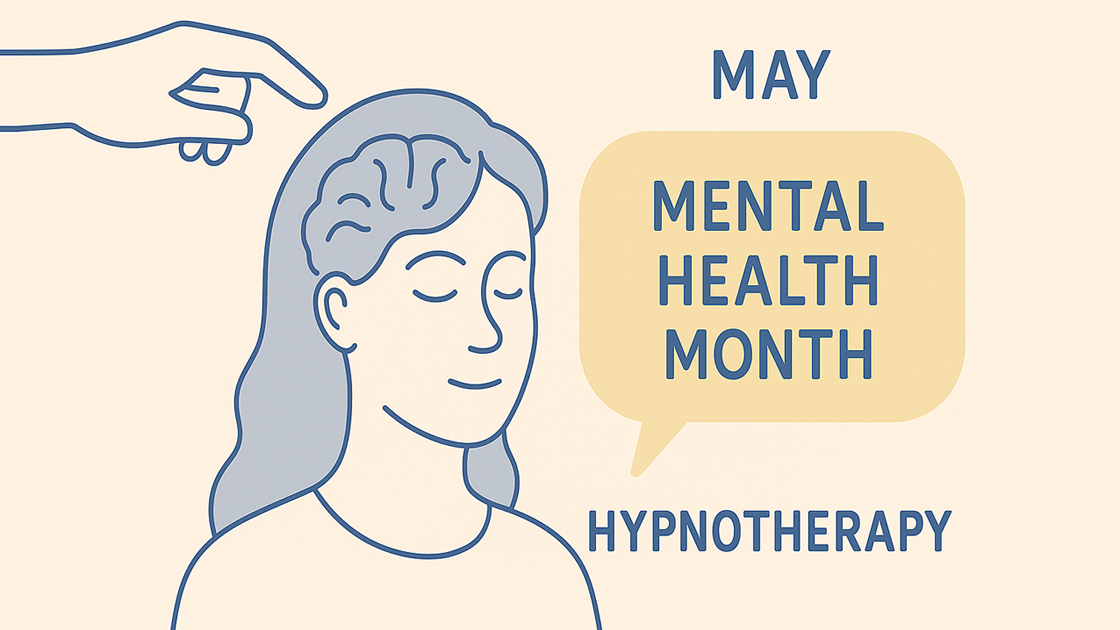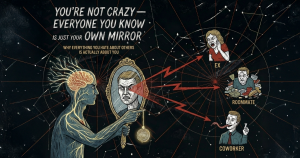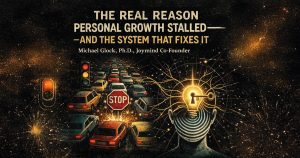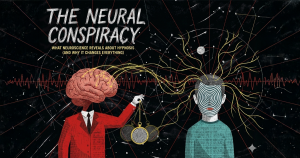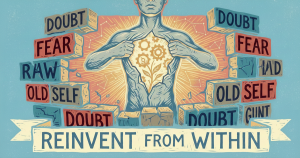Mental Health Awareness Month: Reframing the Path to Creativity, Wholeness, and Self-Realization
Each May, Mental Health Awareness Month offers an opportunity for collective reflection—a chance to pause and reconnect with our internal landscape. Originally launched by the Substance Abuse and Mental Health Services Administration (SAMHSA), this initiative seeks to amplify the vital role of mental well-being in personal and societal health, challenge stigma, and invite open dialogue around healing, regulation, and emotional transformation (SAMHSA, 2024).
Yet, beyond public service announcements and infographics lies a deeper and more personal truth: when we feel well internally, the world becomes more vivid externally. Mental well-being enhances not just our peace of mind, but also our clarity, creativity, and capacity to engage meaningfully with life.
Why Mental Health Awareness Matters
Our modern lives are shaped by often invisible burdens—unprocessed trauma, chronic stress, grief, shame, and anxiety. These psychic weights frequently distort how we perceive ourselves and the world around us. Left unexamined, they restrict our emotional range, drain our creative energy, and block our access to intuition and purpose.
Mental Health Awareness Month invites us to reconsider these patterns—not as signs of dysfunction, but as calls to transformation. It’s an invitation to say: Maybe I’ve normalized emotional burdens that no longer serve me. Maybe I’m ready to let go.
This shift in awareness opens the door to healing and recalibrates the inner conditions for innovation, imagination, and joy. We stop merely coping—and begin creating.
Erasing the Resistance: Mental Health Is Not About What’s Wrong
One of the most enduring barriers to mental health care is the assumption that it implies “something is wrong.” This belief often keeps people silent, ashamed, or disengaged from valuable resources that could enhance their lives. But this view is outdated and harmful.
In truth, mental health is not about identifying flaws—it is about recognizing inherited mindsets and coping mechanisms that may no longer be adaptive. Many of us have unconsciously developed thought patterns and behaviors simply to tolerate difficult circumstances: family dynamics, work pressures, relational trauma.
Becoming aware of these habitual mindsets is not a sign of weakness—it is a powerful act of agency. It allows you to reimagine your approach to challenges and choose new responses. It is not about fixing what’s broken, but about updating your internal operating system to better align with your present reality and future vision.
From Coping to Individuation: Jung’s Vision of Wholeness
Swiss psychiatrist Carl G. Jung (1966) proposed that the highest form of human growth is not found in perfection but in wholeness. Through a process he called individuation, we are invited to integrate the fragmented parts of the psyche—both conscious and unconscious—in order to become more authentically ourselves.
When we suppress emotional wounds or numb our inner life, we remain caught in cycles of reactivity. We may feel like we’re “managing” life, but inside we are disengaged, fragmented, and creatively stifled.
In contrast, when we embrace deep inner work, we reclaim our connection to creativity, vitality, and insight. We are no longer driven by what is unresolved—we are inspired by what is possible.
Mental health, in this light, is not just a state of “not being sick.” It is an active journey toward personal realization and alignment with your unique inner compass.
The Transformative Power of Hypnotherapy
Among the emerging tools in mental wellness, clinical hypnotherapy stands out as both deeply transformative and neurologically aligned with how change occurs in the brain.
Joymind, the largest hypnotherapy platform in the Americas, is at the forefront of delivering research-backed, client-centered hypnotherapy. Through a growing library of programs and live sessions guided by board-certified professionals, Joymind helps individuals:
- Release anxiety and emotional conditioning
- Break free from cycles of overthinking and fear
- Heal from trauma and cultivate post-traumatic growth
- Activate a sense of purpose, creativity, and calm
Clients report not only psychological relief but also cognitive clarity, emotional resilience, and a rekindled connection to their authentic selves. As one user shared:
“After just a few sessions, I felt lighter, more creative, and deeply grounded. It felt like parts of myself I’d forgotten were coming back online.”
Another wrote:
“I was skeptical at first, but hypnotherapy helped me get unstuck in ways I never thought possible. I’m finally writing again—without fear.”
These are not just therapeutic outcomes. They are awakenings. Hypnotherapy doesn’t hypnotize you into submission—it guides you into alignment.
Why Hypnotherapy Works: A Neurological and Existential Reset
Contrary to common myths, hypnotherapy does not override your will. Rather, it invites your mind into a receptive, relaxed state where unconscious patterns can be gently restructured (Oakley & Halligan, 2009). This allows clients to work with, rather than against, their internal landscape.
When practiced effectively, hypnotherapy supports:
- Calming the nervous system
- Enhancing memory integration and emotional processing
- Increasing access to creativity and insight
- Reframing limiting beliefs at the subconscious level
As the mind becomes less reactive and more curious, life becomes more engaging and less threatening. You don’t just feel better—you experience more of what life has to offer.
Mental Health Is Not the Absence of Pain—It Is the Presence of Potential
As we reflect during Mental Health Awareness Month, let us expand the conversation. Let’s redefine mental wellness as a creative act—a reclaiming of our deepest self. Healing is not the end of suffering; it is the beginning of expression.
And for those ready to take that step, Joymind offers a safe, science-backed, and soul-aligned pathway forward.
In the words of Jung (1966), “We cannot change anything until we accept it. Condemnation does not liberate, it oppresses.” Mental health work is not a condemnation of your past—it’s a liberation of your future.
Begin Your Journey
You don’t have to wait until you’re in crisis to care for your mind. You can begin now—with curiosity, courage, and compassion.
Visit www.joymind.com to explore programs, testimonials, and the possibilities waiting inside you.
References
Jung, C. G. (1966). The practice of psychotherapy: Essays on the psychology of the transference and other subjects (Vol. 16, Collected Works). Princeton University Press. https://amzn.to/3GBguNb
Oakley, D. A., & Halligan, P. W. (2009). Hypnotic suggestion: Opportunities for cognitive neuroscience. Nature Reviews Neuroscience, 10(2), 85–91. https://shorturl.at/ZVMcM
Substance Abuse and Mental Health Services Administration (SAMHSA). (2024). Mental Health Awareness Month Digital Toolkit. https://shorturl.at/nuMpa
Joymind. (2024). Client Reviews and Services. https://joymind.com

